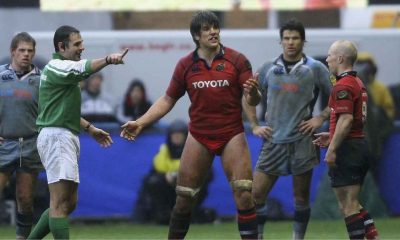Columnists
Academy scattergun not best way to find talent | Jeff Probyn
Putting a value on EQP within the Premiership
More in Columnists
-


Jeremy Guscott: Bath will need the big boys to shine
Bath have got a squad now which, when at full strength, and at home,...
-


Nick Cain: This farce could rip the game to pieces
The longest-running farce in sport is the administration of club rugby union in England,...
-


Nick Cain: Happier hunting ground for Prem clubs in Europe
The opening round of the European Cup was notable for far fewer complaints by...
-


Chris Hewett: Glad we were spared Gianni Infantino’s sycophancy
Just for once, we must congratulate World Rugby on getting it right. Their staging...






















